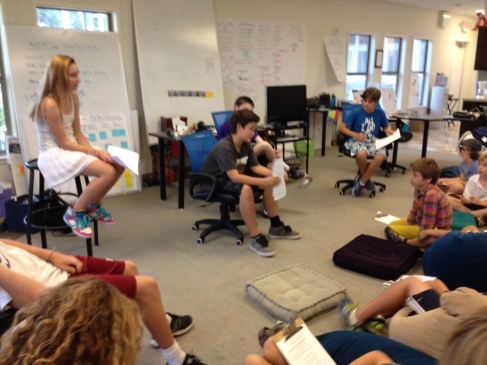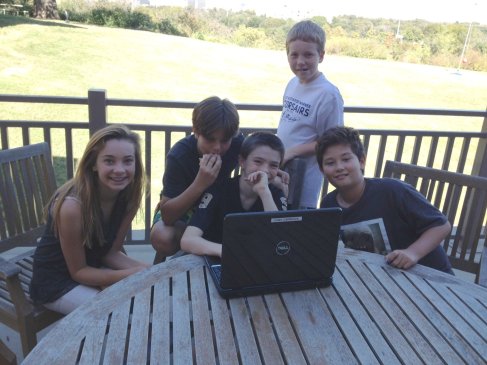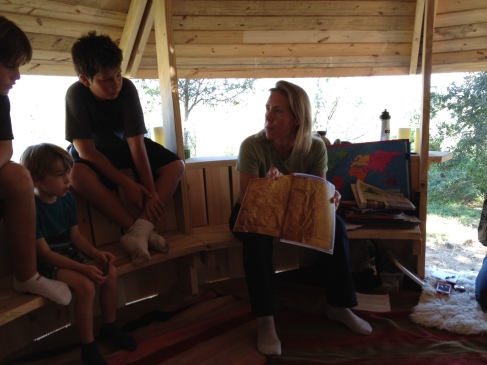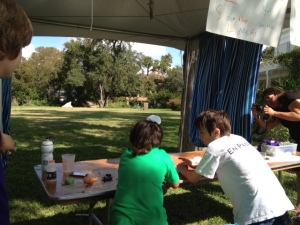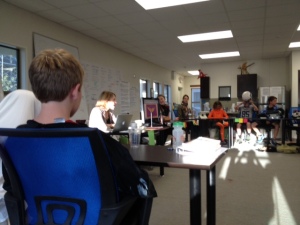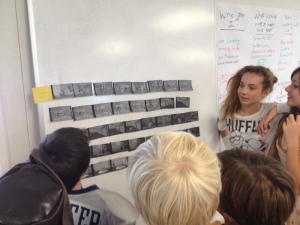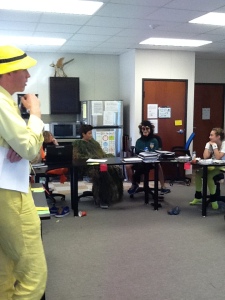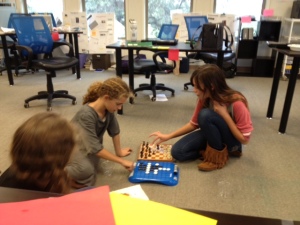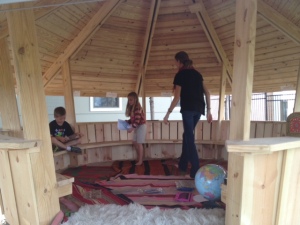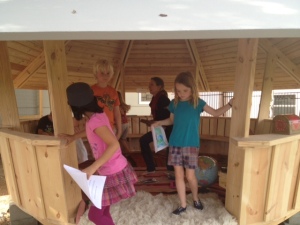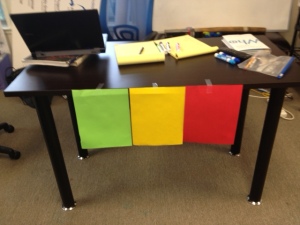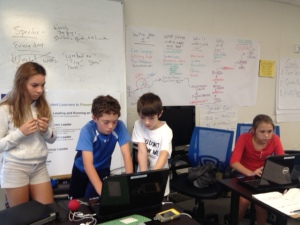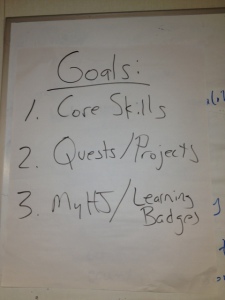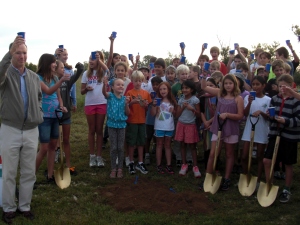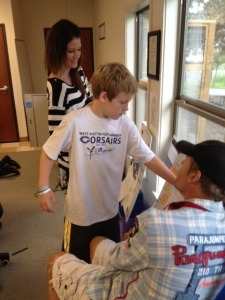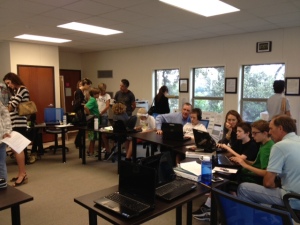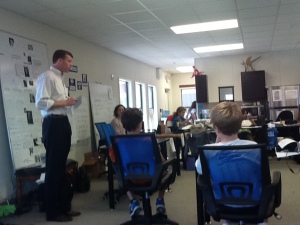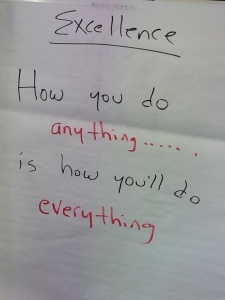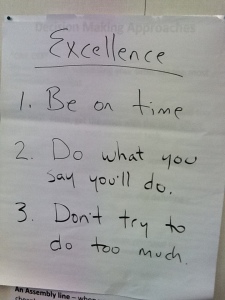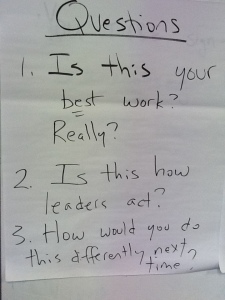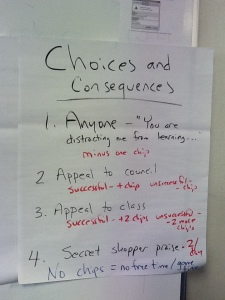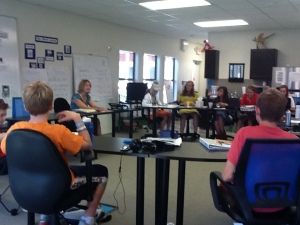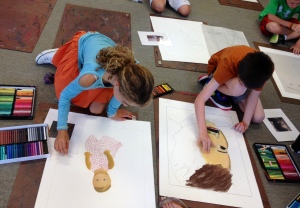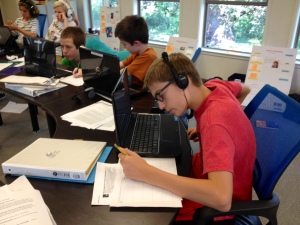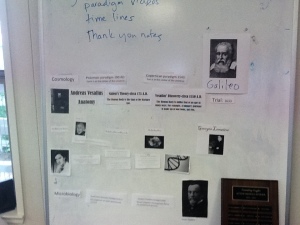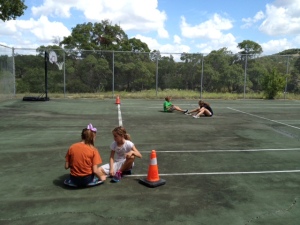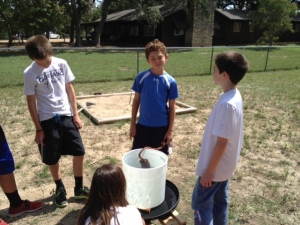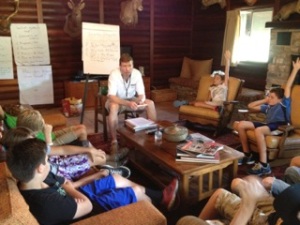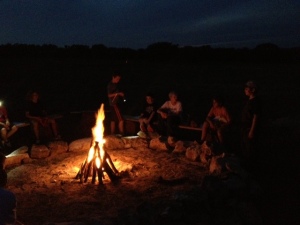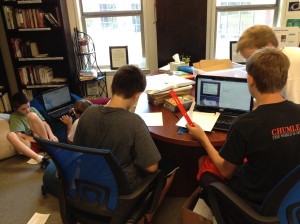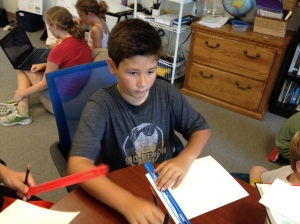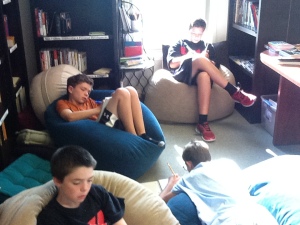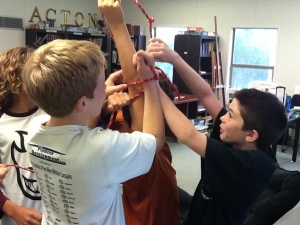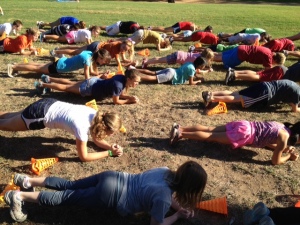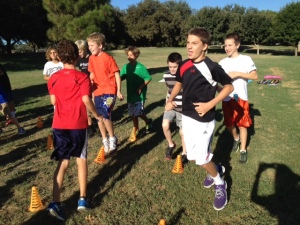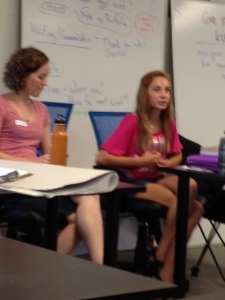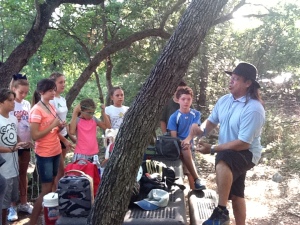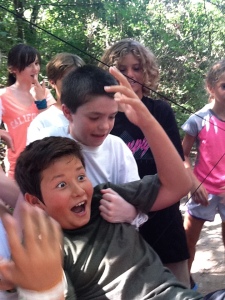Yesterday, five Eagles failed to finish their My Hero’s Journey project on time, and thus suffered the consequences of their choices by missing the class celebration. Some missed by a little; some by a lot.
This must have hurt, because failing publicly always hurts. But at Acton Academy, not everyone wins every race – just like in the real world, there are successes and failures.
Real heroes know it isn’t about winning or losing, but about having the courage to fail, get up, dust yourself off and try again.
Winston Churchill knew this when he said during the depths of World War II:
“We shall not flag or fail. We shall go on to the end. We shall fight in France, we shall fight on the seas and oceans, we shall fight with growing confidence and growing strength in the air, we shall defend our island, whatever the cost may be. We shall fight on the beaches, we shall fight on the landing grounds, we shall fight in the fields and in the streets, we shall fight in the hills; we shall never surrender.”
Churchill fought depression all his life. His political career seemed all but over when he was blamed for 44,000 British deaths at Gallipoli in World War I.
But by 1941, Churchill said at a Harrow graduation : “Never give in–never, never, never, never, in nothing great or small, large or petty, never give in except to convictions of honour and good sense.”
We want our Eagle to try mightily, and when they fail, to feel the sting of temporary defeat. To know how hard it is to fall and get back up and try again. Because it is through effort and failure and rebirth that character is formed.
At the entrance to the Acton MBA is a quote from Teddy Roosevelt:
“It is not the critic who counts; not the man who points out how the strong man stumbles, or where the doer of deeds could have done them better. The credit belongs to the man who is actually in the arena, whose face is marred by dust and sweat and blood; who strives valiantly; who errs, who comes short again and again, because there is no effort without error and shortcoming; but who does actually strive to do the deeds; who knows great enthusiasms, the great devotions; who spends himself in a worthy cause; who at the best knows in the end the triumph of high achievement, and who at the worst, if he fails, at least fails while daring greatly, so that his place shall never be with those cold and timid souls who neither know victory nor defeat.”
Our Acton Academy Eagles’ place will never be with those timid souls, because they are heroes who will change the world, even if it means knowing the bitter taste of an occasional defeat, and the courage it takes to get back up and try again.
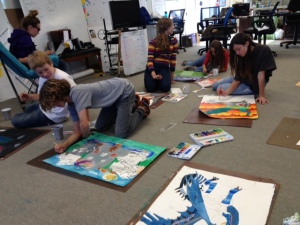
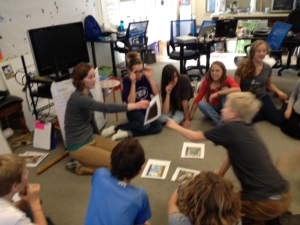
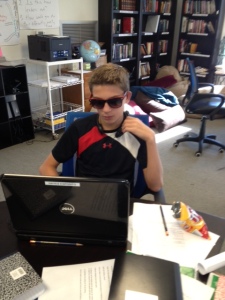
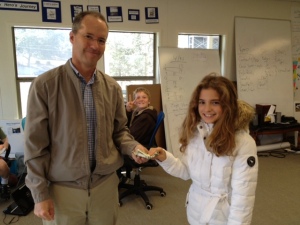
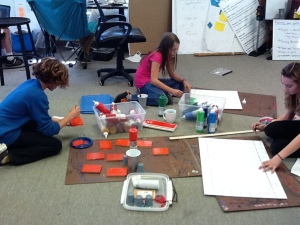
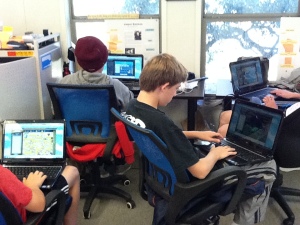
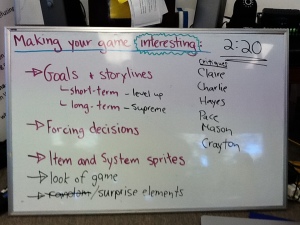
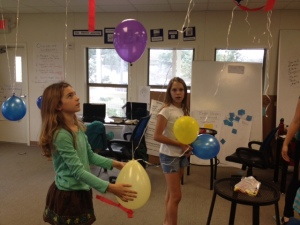
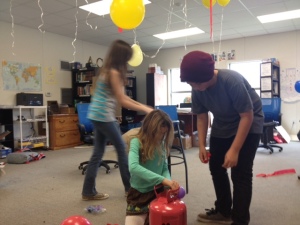
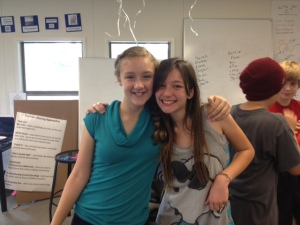
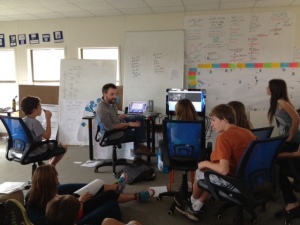
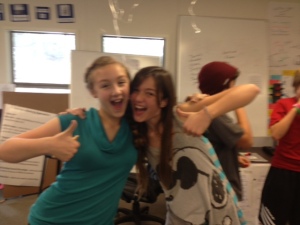

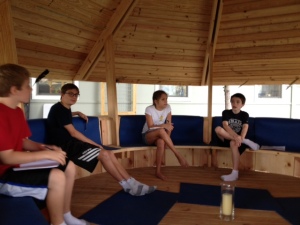
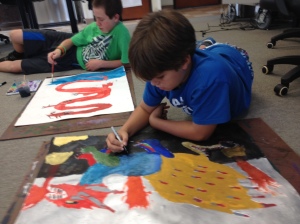
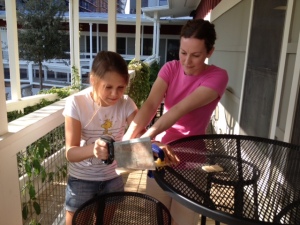
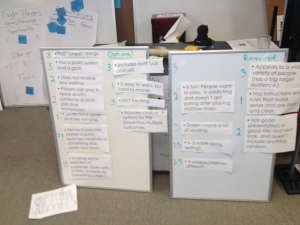
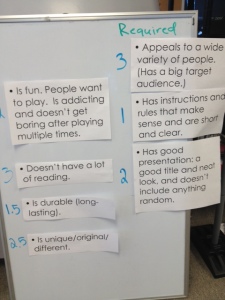
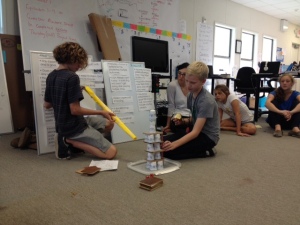
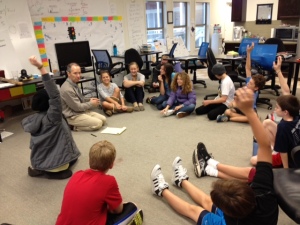
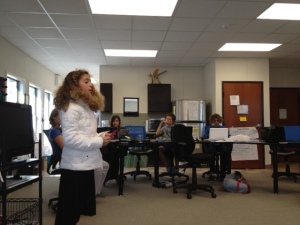







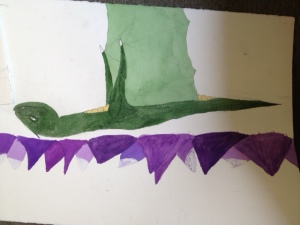


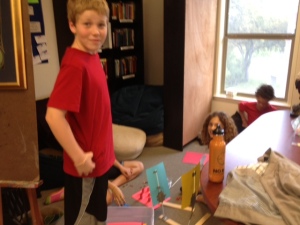
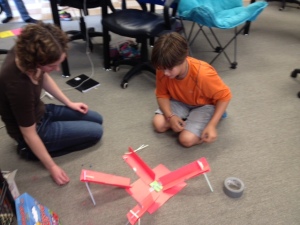
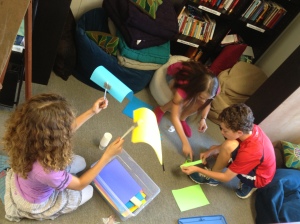


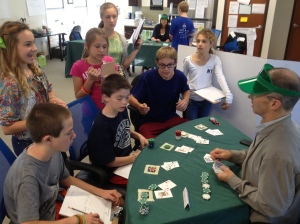
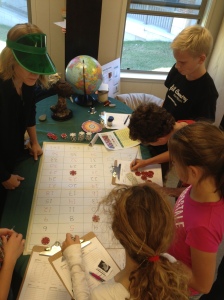
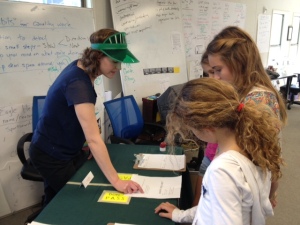
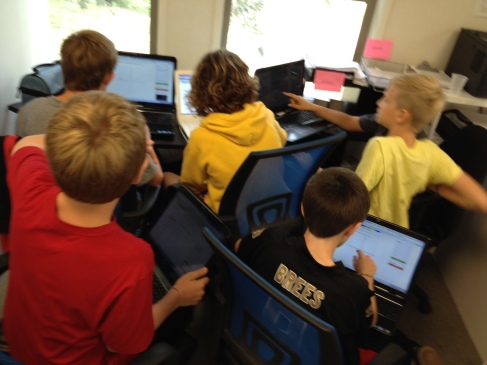
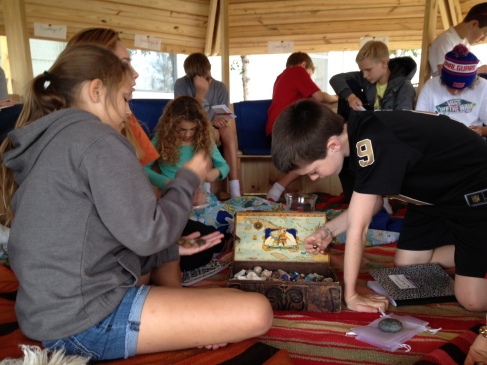
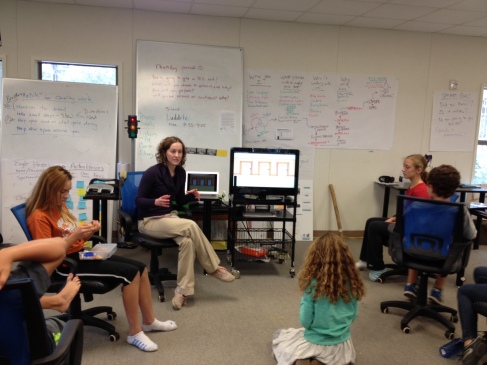
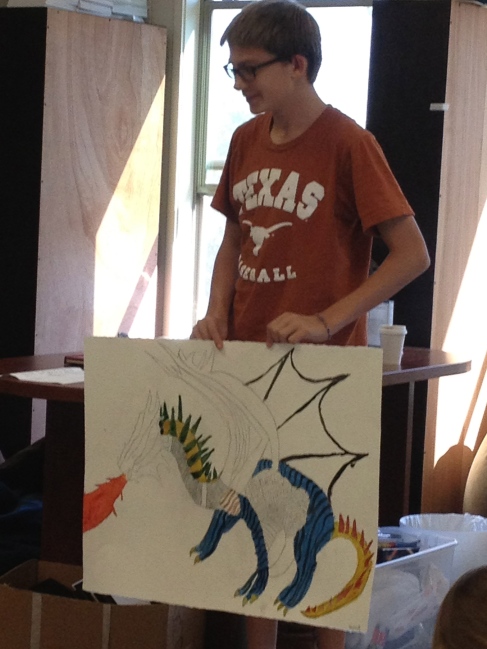
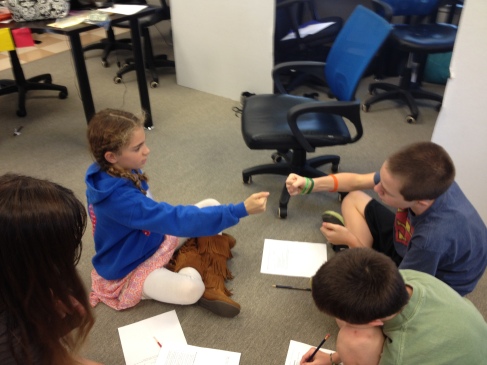
 The student council ran the meeting as a streamlined huddle, showing respect for all points of view yet honoring their commitment to stay on topic, avoid repetition, and keep it to fifteen minutes. Grievances were aired, solutions proposed, disagreements weathered. Perhaps a stronger community emerged from the wobbles of dissent.
The student council ran the meeting as a streamlined huddle, showing respect for all points of view yet honoring their commitment to stay on topic, avoid repetition, and keep it to fifteen minutes. Grievances were aired, solutions proposed, disagreements weathered. Perhaps a stronger community emerged from the wobbles of dissent.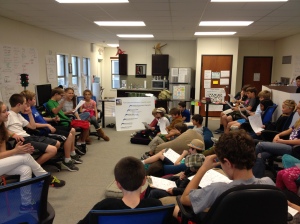 A larger group, including some Acton 3rd-5th graders, came together for more decision making at the end of day, as the Green Light panel reassembled to hear presentations from the film crews working on The Bandit and The Thing in the Dark. “Asking us questions will make our work stronger,” one student advised. Ellie did a fabulous job moderating, the presentations were professional and engaging, and once again the projects received green lights all around.
A larger group, including some Acton 3rd-5th graders, came together for more decision making at the end of day, as the Green Light panel reassembled to hear presentations from the film crews working on The Bandit and The Thing in the Dark. “Asking us questions will make our work stronger,” one student advised. Ellie did a fabulous job moderating, the presentations were professional and engaging, and once again the projects received green lights all around.



